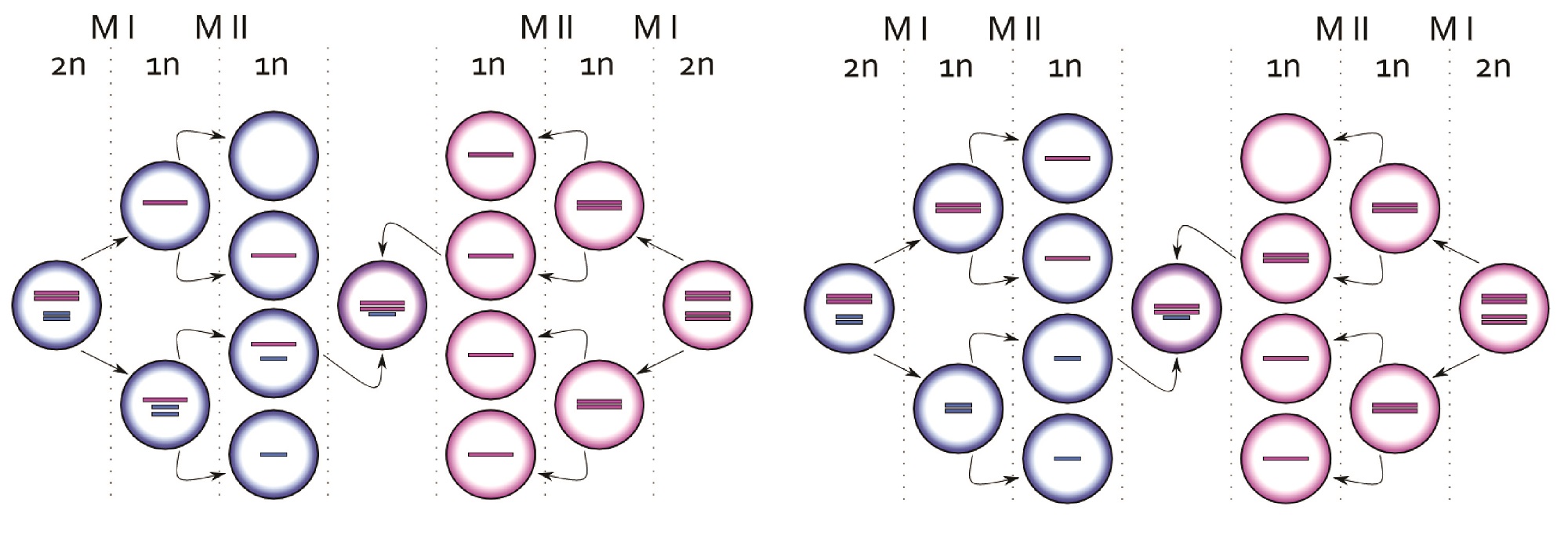
15:13 27th June 2018 | Male Fertility
Klinefelter syndrome (XXY) is a random, genetic abnormality, where males are born with an extra X chromosome. As the symptoms are subtle, often males may be completely unaware of having the extra chromosome and lead normal, healthy lives. Complications may only arise when trying to have children. As one or two per 1,000 males born are affected, Klinefelter syndrome is one of the most common chromosomal abnormalities.
How does Klinefelter syndrome happen?
It is a random error in the cell cycle; it is not a hereditary condition. The extra chromosome is retained due to a failure of chromosomes to separate during cell division when forming gametes (sex cells such as sperm or eggs). This may happen to the paternal or maternal gametes during meiosis 1 (first cell division), or during meiosis 2 (second cell division) in the egg.
Cell division during meiosis 1 and 2

Recognising Klinefelter syndrome:
About 10% of cases are found by prenatal screening; preventative healthcare that focuses on detecting the health of a baby before it is born. Babies and children with Klinefelter may have weaker muscles and reduced strength, struggle with speech, or have learning or language problems.
It may only be at puberty that people may realise they are affected. Subtle symptoms may arise, such as small testicles, enlarged breast tissues, reduced body and facial hair, and a disinterest in sex. As an adult male, one’s fertility may be affected. Symptoms may include low or no sperm count, low sex drive, and small testicles and penis.
Many of the complications caused by Klinefelter syndrome are related to low testosterone levels, such as diabetes, hypothyroidism, certain cancers, and osteoporosis. The genetic variation is irreversible, but hormone therapy can assist many of the symptoms.
Infertility can be overcome by IVF and intracytoplasmic sperm injection, which has success rates of up to 45%. Older women are at a higher risk of “passing down” this extra sex chromosome, so it is always advisable to speak to a specialist when trying to conceive at an older age.
Image ref: By XXY_syndrome.svg: Silver Spoonderivative work: Adert - This file was derived from: XXY syndrome.svg:, CC BY-SA 3.0, https://commons.wikimedia.org/w/index.php?curid=21108514
DON’T MISS IMPORTANT AND RELEVANT HEALTH-RELATED UPDATES
Sign up to receive our monthly mailers.
If you have any questions, or if you want to book an appointment, please don’t hesitate to get in touch:
Email: enquiries@thebridgeclinic.com
Call: 01 631 0092 / +234 (0)1 631 0092
Visit: 66 Oduduwa Way, Ikeja GRA
Search by condition, treatment or keyword and conveniently browse our informative articles
Book an appointment online or search for a clinic close to you.
Book an Appointment